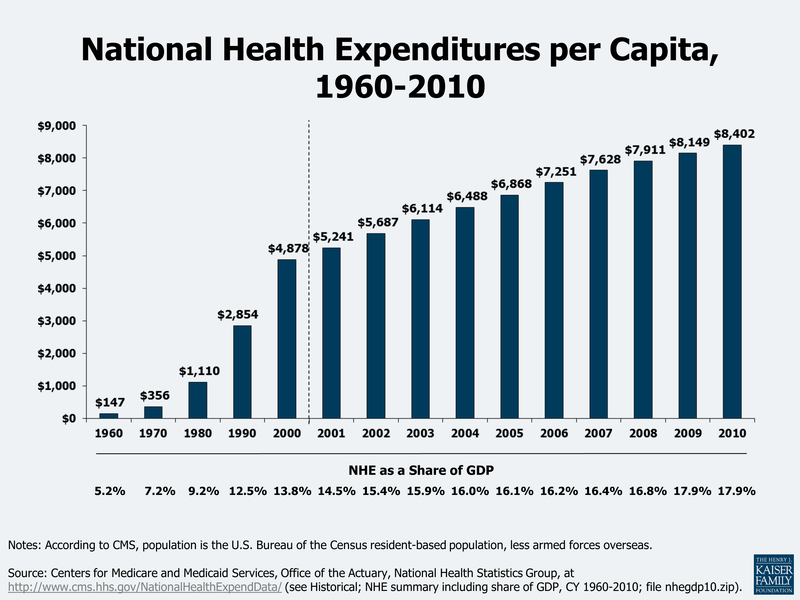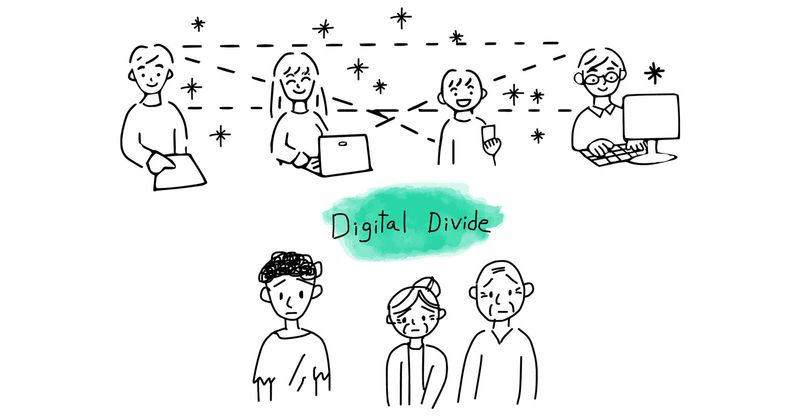As Baby Boomers navigated the complexities of the modern world, many harbored fears about the future. From environmental concerns to technological shifts, some of their worries have indeed manifested in reality.
In this blog post, we explore 27 fears once held by Baby Boomers that have come to fruition.
Each item is crafted with a conversational tone, aiming to shed light on these fears and their implications today. Let’s delve into a journey of understanding how the past has shaped our present.
1. Environmental Degradation
Environmental degradation has been a pressing concern, with Baby Boomers witnessing firsthand the increasing pollution of air, water, and soil. In their youth, many feared the long-term impacts of industrialization and reckless human activities on the planet’s health.
Today, climate change, deforestation, and loss of biodiversity serve as stark reminders of these neglected warnings. The alarming rise in pollution levels has led to drastic changes in weather patterns and the depletion of natural resources.
Conversations around sustainability and conservation have gained momentum, but the journey to reversing these effects is ongoing.
2. Economic Instability
Economic instability has been a recurring fear, especially after witnessing events like the 1970s oil crisis and 2008 financial meltdown. Boomers worried about job security, inflation, and the volatility of global markets affecting their livelihoods.
As these concerns materialized, economic recessions and fluctuating markets have become common. Many retirees face financial uncertainty despite years of saving and investment.
Today, global economies grapple with similar issues, and the future remains unpredictable. Adapting to this changing landscape involves reassessing financial goals, staying informed, and diversifying investments to mitigate risks.
3. Technological Overload
Technological overload is a reality for many Boomers who grew up without the internet and witnessed its rapid expansion. The digital age has brought convenience but also challenges like privacy concerns, cybersecurity threats, and information overload.
Navigating this landscape can be daunting for those who didn’t grow up with technology at their fingertips. Adapting to new gadgets and platforms requires continuous learning and openness to change.
Many seniors actively engage in digital literacy programs to bridge this gap, ensuring they remain connected and informed in a world that is constantly evolving.
4. Healthcare Costs
Rising healthcare costs have been a significant concern for Baby Boomers, who anticipated the challenges of affording quality medical care in their later years.
With the increasing complexity and expense of medical treatments, many face financial burdens despite having insurance. The fear of inadequate healthcare access has driven discussions around reform and affordability.
Seniors often grapple with high out-of-pocket expenses and limited coverage for essential services. Exploring options like Medicare and supplemental insurance can help mitigate costs, but navigating the healthcare system requires diligence and proactive planning.
5. Loss of Privacy
The loss of privacy in the digital age was a fear that has certainly become reality. As technology advanced, so did the methods of data collection and surveillance, leaving many feeling exposed and vulnerable.
Boomers, who grew up in a more private era, find this shift particularly unsettling. The constant monitoring by apps, social media, and governmental agencies has raised ethical questions about data security and personal freedom.
Navigating this digital landscape involves understanding privacy settings, using secure platforms, and staying informed about rights and protections in the digital space.
6. Social Disintegration
Social disintegration was a worry as Boomers saw communities fragmenting and traditional social structures evolving. The rise of digital communication has reshaped interactions, often replacing face-to-face connections with virtual ones.
This shift has led to feelings of isolation and disconnection among many, impacting mental health and community cohesion. Despite the convenience of digital interactions, the absence of genuine human contact can be felt deeply.
Encouraging real-world engagements and fostering community activities are essential steps in rebuilding social bonds that technology cannot replicate.
7. Job Automation
Job automation was a looming fear, as Boomers witnessed the rise of machines taking over manual tasks in various industries. The quest for efficiency has led to increased automation, impacting job security and employment opportunities.
Many workers have had to adapt to new roles or face unemployment as technology evolves. This shift has prompted discussions about the future workforce and the need for reskilling and lifelong learning.
Embracing continuous education and staying updated with industry trends are crucial for remaining relevant in a job market where automation is prevalent.
8. Political Polarization
Political polarization has intensified, echoing fears of a divided society. Baby Boomers have witnessed increasing partisanship and ideological divides that challenge democratic discourse.
The polarization of political views has translated into gridlock in governance and strained relationships among individuals. This division often leaves little room for compromise or constructive dialogue.
Bridging these gaps requires efforts to understand diverse perspectives, promote respectful conversations, and foster unity in shared goals. Encouraging open-mindedness and active participation in the political process can contribute to a more cohesive society.
9. Resource Scarcity
Resource scarcity was a pressing fear as Boomers realized the finite nature of natural resources. The growing demand for water, energy, and food has strained supplies, exacerbating environmental challenges.
Climate change and population growth compound these issues, leading to concerns about sustainability and equitable distribution. The fear of depleting resources has spurred innovations in conservation and renewable energy.
However, addressing this scarcity requires continued commitment to sustainable practices and policies that promote responsible consumption and resource management. Educating future generations about these challenges is vital for long-term solutions.
10. Decline in Education Standards
The decline in education standards has been a concern for Boomers, especially regarding the quality of teaching and outdated curricula. As education systems face budget cuts and increasing demands, maintaining high standards proves challenging.
Many worry about the preparedness of future generations amidst these constraints. The rise of technology in classrooms offers opportunities but also challenges in ensuring effective learning.
Advocating for innovative teaching methods and adequate funding are essential to uphold educational excellence. Engaging communities in supporting schools and fostering partnerships can help address these challenges collaboratively.
11. Cybersecurity Threats
Cybersecurity threats have become a daunting reality, with Boomers witnessing the rise of cyberattacks and data breaches. As dependence on technology grows, so does vulnerability to malicious activities online.
The fear of identity theft, phishing scams, and ransomware attacks looms large, affecting individuals and businesses alike. Safeguarding personal information involves understanding cybersecurity practices, like using strong passwords and enabling two-factor authentication.
Staying informed about potential threats and adopting best practices in digital security are crucial steps in protecting oneself and one’s data in an increasingly connected world.
12. Health Epidemics
Health epidemics have been a concern for Baby Boomers, who have lived through outbreaks like HIV/AIDS and, more recently, COVID-19. The fear of widespread illness and inadequate healthcare responses has been realized multiple times.
Pandemics expose vulnerabilities in healthcare systems and emphasize the importance of preparedness and resilience. Understanding public health measures and supporting research and development are crucial in combating these threats.
Building robust healthcare infrastructures and promoting global cooperation can mitigate the impacts of future health crises, protecting communities worldwide from devastating outbreaks.
13. Nuclear Threats
Nuclear threats have haunted Boomers who grew up during the Cold War, fearing the devastation of nuclear conflict. Although tensions eased over time, the threat persists with nuclear proliferation and geopolitical conflicts.
The potential for catastrophic consequences necessitates continued efforts in diplomacy and disarmament. Promoting peace and global cooperation is paramount in reducing nuclear risks.
Engaging in international dialogues and supporting treaties aimed at nuclear reduction are steps toward a safer world. Educating the public about these dangers and advocating for non-proliferation can foster a culture of peace and security.
14. Erosion of Moral Values
The erosion of moral values has been a concern as Boomers observed shifts in societal norms and behaviors. The fear of declining ethical standards and respect for traditions has been a topic of debate across generations.
Rapid cultural changes and media influences often challenge conventional values, leading to generational conflicts. Navigating these changes involves understanding the diverse perspectives that shape modern society.
Encouraging dialogue between generations and fostering a respect for multiculturalism can bridge these divides. Embracing change while holding onto core values can create a balanced and harmonious society.
15. Urban Overcrowding
Urban overcrowding was anticipated as Boomers saw cities grow rapidly, leading to congestion and strained infrastructure. The influx of populations into urban centers has resulted in housing shortages, traffic jams, and inadequate public services.
These challenges affect quality of life and sustainability in cities. Addressing overcrowding requires innovative urban planning, investment in public transport, and sustainable housing developments.
Engaging communities in shaping urban policies can create more livable and resilient cities. Prioritizing green spaces and efficient resource management are vital for accommodating growing urban populations without compromising on quality.
16. Decline in Manufacturing Jobs
The decline in manufacturing jobs has been a significant fear as globalization and technological advancements reshape the industrial landscape. Boomers witnessed the outsourcing of jobs and the closure of factories, impacting local economies.
The shift towards a service-based economy has left many struggling to find employment in their traditional sectors. Reskilling and transitioning into emerging industries offer pathways to new opportunities.
Supporting policies that promote industrial innovation and workforce development are essential in revitalizing manufacturing sectors. Encouraging entrepreneurship and adapting to market demands can foster economic resilience and job creation.
17. Rise in Mental Health Issues
The rise in mental health issues has become apparent, with Boomers acknowledging the increasing prevalence of conditions like depression and anxiety.
The stigma surrounding mental health has been a barrier to seeking help, but awareness and acceptance are growing. Access to mental health services remains a challenge, highlighting the need for comprehensive care and support systems.
Fostering a culture of openness and understanding can break down barriers and encourage individuals to seek assistance.
Promoting mental well-being involves advocating for policies that prioritize mental health and integrating services into primary healthcare systems.
18. Rise of Artificial Intelligence
The rise of artificial intelligence has been met with both excitement and apprehension, especially among Boomers who fear the unknown implications of this technology.
AI’s integration into daily life raises concerns about privacy, job displacement, and ethical considerations. The rapid advancement of AI challenges traditional industries and societal norms.
Navigating the future with AI involves understanding its potential and limitations. Encouraging ethical AI development and public awareness can help address these fears.
Embracing AI’s benefits while advocating for regulations and standards ensures that technology enhances rather than disrupts human life.
19. Aging Population Concerns
Concerns about an aging population have become reality as Boomers themselves age, putting pressure on healthcare, pensions, and social services. The growing number of seniors requires adaptations in infrastructure and policy to ensure quality care and support.
The fear of inadequate resources and services for the elderly has driven discussions about aging in place and retirement planning. Encouraging active aging and community engagement can enhance quality of life for seniors.
Fostering intergenerational support and innovative care models are essential in navigating the challenges of an aging society.
20. Rise of Surveillance
The rise of surveillance has been an unsettling reality for Boomers who value privacy and freedom. The proliferation of CCTV, drones, and digital tracking raises concerns about civil liberties and personal freedom.
Navigating this surveillance society involves understanding rights and advocating for privacy protections. Engaging in dialogues about the balance between security and privacy is crucial.
Encouraging transparency and accountability in surveillance practices can help mitigate fears. Staying informed and participating in policy discussions are essential steps in ensuring that surveillance serves the public interest without infringing on individual freedoms.
21. Digital Divide
The digital divide has been a concern as technology advances, leaving some Boomers behind in a rapidly evolving digital world. The gap between those with access to digital tools and those without affects communication, education, and employment opportunities.
Bridging this divide involves promoting digital literacy and ensuring equitable access to technology. Encouraging intergenerational learning and providing resources for seniors can empower them to navigate the digital landscape.
Addressing the digital divide requires collaborative efforts from governments, communities, and industries to create inclusive environments where everyone can thrive.
22. Decline of Traditional Media
The decline of traditional media was a fear as digital platforms reshaped how information is consumed. Boomers, accustomed to newspapers and broadcast TV, have seen these mediums struggle in the face of online competition.
The shift to digital has raised concerns about information reliability and the loss of local journalism. Navigating this media landscape involves discerning credible sources and understanding digital literacy.
Supporting diverse media outlets and promoting media literacy education are essential in preserving informed societies. Embracing both traditional and digital media can offer a balanced perspective in news consumption.
23. Impact of Globalization
The impact of globalization has been a complex reality, with Boomers witnessing both opportunities and challenges. The interconnectedness of global economies and cultures brings diverse influences but also competition and disruption.
Concerns about job losses and cultural homogenization have been prevalent. Navigating globalization involves embracing its benefits while addressing its challenges. Supporting policies that promote fair trade and cultural exchange can foster a more equitable global landscape.
Engaging in cross-cultural dialogues and understanding global perspectives are essential in building inclusive and resilient communities that thrive in a globalized world.
24. Financial Inequality
Financial inequality has been a growing concern, with Boomers witnessing widening gaps between the wealthy and the poor. The concentration of wealth and resources in the hands of a few exacerbates social and economic disparities.
This inequality affects access to education, healthcare, and opportunities for upward mobility. Addressing financial inequality involves advocating for policies that promote equitable wealth distribution and social welfare.
Supporting initiatives that empower marginalized communities and provide access to essential services can bridge these gaps. Encouraging inclusive economic growth ensures that prosperity is shared across all segments of society.
25. Environmental Activism
Environmental activism has gained momentum, with Boomers playing a pivotal role in advocating for sustainable practices. The fear of environmental neglect drove many to push for change and raise awareness about pressing issues.
This activism has led to significant strides in conservation and policy reform but challenges persist. Encouraging continued advocacy and engagement is vital in addressing the ongoing environmental crisis.
Supporting grassroots movements and collaborating with global initiatives can amplify efforts to protect the planet. Educating younger generations about environmental stewardship ensures that activism remains robust and impactful for years to come.
26. Overdependence on Technology
Overdependence on technology has become a reality, with Boomers recognizing the challenges of living in a tech-driven world. The reliance on gadgets and systems for everyday tasks raises concerns about privacy, security, and human interaction.
While technology offers convenience, it also creates vulnerabilities when systems fail. Navigating this dependence involves balancing technology use with offline activities and ensuring digital literacy.
Encouraging mindfulness and critical thinking can mitigate the risks of overreliance. Fostering environments that promote tech-life balance can enhance well-being and resilience in an increasingly digital society.
27. Cultural Dissonance
Cultural dissonance has been a concern as globalization and migration bring diverse cultures together. Boomers have witnessed the blending of traditions and the tensions that arise from cultural differences.
Navigating this diversity involves embracing inclusivity and understanding the richness that different cultures offer. Encouraging cross-cultural exchanges and fostering intercultural dialogue can bridge divides and promote harmony.
Supporting multicultural initiatives and celebrating diversity in communities can create cohesive societies that thrive on mutual respect and collaboration. Embracing cultural diversity enriches lives and strengthens the social fabric of modern societies.



























